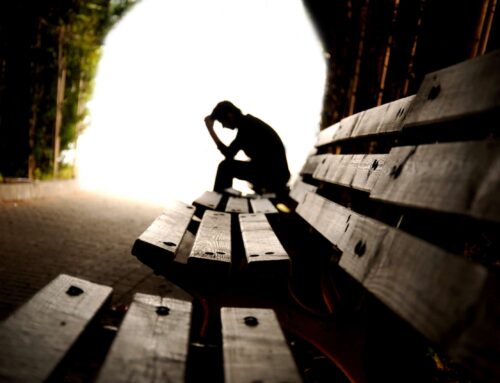Summer Affecting Your Mental Health?
If you find yourself struggling with your mental health in the summer, you’re not alone. Many people know about seasonal affective disorder (SAD), associating it mostly with an increase of depressive symptoms in the winter. People who suffer from SAD in the winter may sleep more (hypersomnia), withdraw socially, overeat, and experience a drop in energy levels. Less sunlight and colder temperatures increase the body’s production of melatonin, causing sluggishness and less energy.
While most people with SAD experience increased symptoms in the wintertime, a tenth of them will have summer-onset SAD.
It may be hard to understand why someone wouldn’t enjoy the long summer days and increased sunshine, but a person with summer-onset SAD is genuinely struggling during the summer months. These people will likely benefit from extra behavioral health services in the summertime.
Symptoms of Seasonal Affective Disorder
When it comes to mental health disorders, SAD is not considered a disorder of its own. Rather, it is classified as a subtype of major depressive disorder.
The symptoms of summer-onset SAD are slightly different from its winter counterpart. According to the National Institute of Mental Health they include:
✅ Restlessness
✅ Anxiety
✅ Insomnia
✅ Agitation
✅ Poor appetite and weight loss
✅ Episodes of violent behavior.
In order to be diagnosed with SAD, an individual must experience symptoms in a seasonal pattern (in this case summer) for at least two years. Summer SAD is more than just feeling slightly agitated because it’s hot outside. It’s an ongoing pattern of symptoms that affect daily life to a significant degree.
Causes
The causes of summer-onset SAD have been studied less than its winter-onset SAD. It is much less common and not much is known about it yet. However, according to Psychology Today, there are a few theories that can give us some insight into why people may experience these symptoms in the summer. They are:
Too much sunlight
✅ Too much sunlight — Melatonin production slows when the brain perceives light. Melatonin helps you fall asleep. The extra sunlight in the summer can decrease melatonin levels, causing insomnia and other summer SAD symptoms.
High temperatures
✅ High temperatures — People with summer SAD tend to find the heat agitating. The drop in temperature during the winter tends to be calming for them.
Late summer nights
✅ Late summer nights — Some people tend to stay up later in the summer. Doing so throws off their circadian rhythm, causing sleep problems.
Genetics
✅ Genetics — SAD is more common in people who have a relative with a mood disorder.
Treatment
Summer SAD, like many mental health disorders, can be successfully treated with mental health therapy and medications. Many people find cognitive behavioral therapy particularly helpful. In some cases, mental health professionals may recommend increasing the dose of medication around springtime to prepare for the increase of symptoms experienced in the summer months.
In addition to mental health therapy and medication, a few lifestyle changes may be beneficial if you have summer-onset SAD. Consider trying these strategies:
Stay in the dark more often
✅ Stay in the dark more often — Try to spend more time in dark places, especially as the evening approaches. Consider getting curtains for your bedroom that block out light. This will help your body produce more melatonin.
Keep cool
✅ Keep cool — Attempt to limit your exposure to the hot sun. Use air conditioning when you can, go swimming, and stay in cool spaces. You won’t feel as agitated from being in the heat.
Practice good sleep hygiene
✅ Practice good sleep hygiene — It may be harder for you to fall asleep than it is for others, but practice behaviors that promote good sleep. Go to bed and wake up at the same time every day, stop using your devices at least an hour before bed, use your bed only for sleeping, and limit daytime naps to 30 minutes.
Learn and practice coping skills
✅ Learn and practice coping skills — Therapy will help you learn coping skills, but it’s up to you to put them into practice. Make sure you’re consistently using the strategies that work best for you.
Don’t feel like you’re weird or strange because all your friends enjoy the summer and you can’t wait for the winter to come. For many people, it’s comforting to know that summer-onset SAD is a real problem that affects real people. If you think you’re struggling with SAD, consider looking into behavioral health services so you can learn to cope.
Existing Patients and New Patients, Call us to schedule an appointment, get a prescription refill or just to ask a question:
New Patients ONLY - Want to contact us through a form? CLICK HERE to fill out our contact form.





